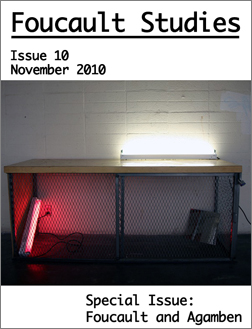What is a Dispositive?
DOI:
https://doi.org/10.22439/fs.v0i10.3120Abstract
The distinct French and Italian concepts of appareil/apparato and dispositif/dispositivo have frequently been rendered the same way as "apparatus" in English. This presents a double problem since it collapses distinct conceptual lineages from the home languages and produces a false identity in English. While there are good reasons for which translators have chosen to use "apparatus" for dispositif, there is growing cause for evaluating the theoretical and empirical specificity of each concept, and either to rethink the rendering as "apparatus" or to keep in mind the specific philosophical trajectories of each one. In particular, the ongoing release of Michel Foucault’s Collège de France lecture courses (in which the term is frequently used), and the essays by Gilles Deleuze and Giorgio Agamben bearing directly on the dispositif and the dispositivo present a strong case for reevaluating the usage and rendering of these concepts. This paper presents a number of minute considerations on the productive distinction between them.Downloads
Published
2010-11-01
How to Cite
Bussolini, J. (2010). What is a Dispositive?. Foucault Studies, (10), 85–107. https://doi.org/10.22439/fs.v0i10.3120
Issue
Section
Special Issue on Foucault and Agamben
License
Authors retain copyright to their work, but assign the right of the first publication to Foucault Studies. The work is subject to a CC BY-NC-ND 4.0 license, but despite these restrictions, authors can take for granted that Foucault Studies will permit articles published in Foucault Studies to be translated or reprinted in another format such as a book providing a full reference is made to Foucault Studies as the original place of publication.



